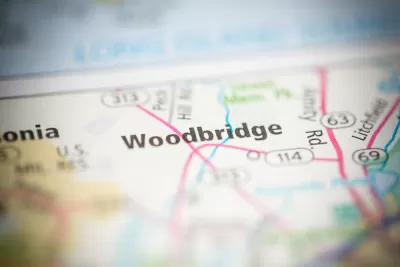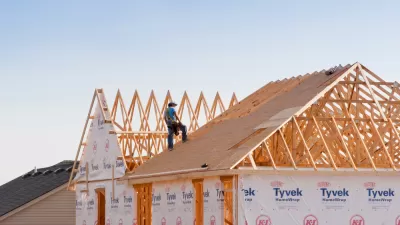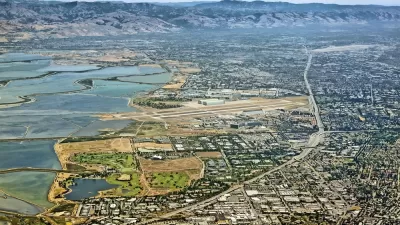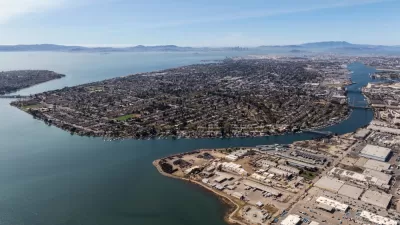Open Communities Alliance, along with law students and professors at a fair housing development clinic at Yale Law School, have proposed a development meant to trigger the exclusionary zoning code in the town of Woodbridge, Connecticut.

Jacqueline Rabe Thomas reports on a potential groundbreaking effort to poke legal holes in the fortress of exclusionary zoning that controls residential development in most communities in the United States, with discriminatory and segregationist effects. The scene is set in Woodbridge a small town of about 9,000 residents in New Haven County, Connecticut.
Woodbridge has zoned strictly for single-family housing, and has purchased large tracts of land to prevent the development of affordable and multi-family housing, according to Thomas.
The team trying a new approach to breaking down the exclusionary barriers of Woodbridge's approach to land use, is launching its effort as a mission of civil rights.
Attorneys from the Open Communities Alliance, joined by law students and professors at a fair housing development clinic at Yale Law School, are asking Woodbridge’s Planning and Zoning Commission to approve their application to build a four-unit house on a 1.5 acre lot that is zoned for a single-family home – and, more importantly, to completely overhaul local zoning regulations to allow the town’s “fair share” of affordable housing to be built. The application is different from a typical zoning application in that it focuses almost entirely on the need for a systemic overhaul of the town’s “exclusionary” zoning regulations, as opposed to seeking approval to break ground on a single project.
The development application is a dare to Woodbridge: a rejection would allow the legal team to appeal the decision in court.
"The case has potential statewide implications for other Connecticut towns with similar zoning restrictions if the courts ultimately determine Woodbridge’s regulations have led to discriminatory housing practices," according to Thomas. The case hinges on the lawyers' ability to prove that the segregation found in cities like Woodbridge is a result of deliberate intent.
Connecticut has been shown to be one of the most segregated states in the country, and even the current political climate of civil unrest and a reckoning with the role of planning and land use policy in the perpetuation of racism and discrimination, efforts to reform land use in the state have met resistance despite a growing coalition of support for less restrictive land use regulations.
FULL STORY: Civil rights attorneys take aim at single-family zoning using Woodbridge as test case

Planetizen Federal Action Tracker
A weekly monitor of how Trump’s orders and actions are impacting planners and planning in America.

Maui's Vacation Rental Debate Turns Ugly
Verbal attacks, misinformation campaigns and fistfights plague a high-stakes debate to convert thousands of vacation rentals into long-term housing.

Restaurant Patios Were a Pandemic Win — Why Were They so Hard to Keep?
Social distancing requirements and changes in travel patterns prompted cities to pilot new uses for street and sidewalk space. Then it got complicated.

In California Battle of Housing vs. Environment, Housing Just Won
A new state law significantly limits the power of CEQA, an environmental review law that served as a powerful tool for blocking new development.

Boulder Eliminates Parking Minimums Citywide
Officials estimate the cost of building a single underground parking space at up to $100,000.

Orange County, Florida Adopts Largest US “Sprawl Repair” Code
The ‘Orange Code’ seeks to rectify decades of sprawl-inducing, car-oriented development.
Urban Design for Planners 1: Software Tools
This six-course series explores essential urban design concepts using open source software and equips planners with the tools they need to participate fully in the urban design process.
Planning for Universal Design
Learn the tools for implementing Universal Design in planning regulations.
Heyer Gruel & Associates PA
JM Goldson LLC
Custer County Colorado
City of Camden Redevelopment Agency
City of Astoria
Transportation Research & Education Center (TREC) at Portland State University
Jefferson Parish Government
Camden Redevelopment Agency
City of Claremont





























